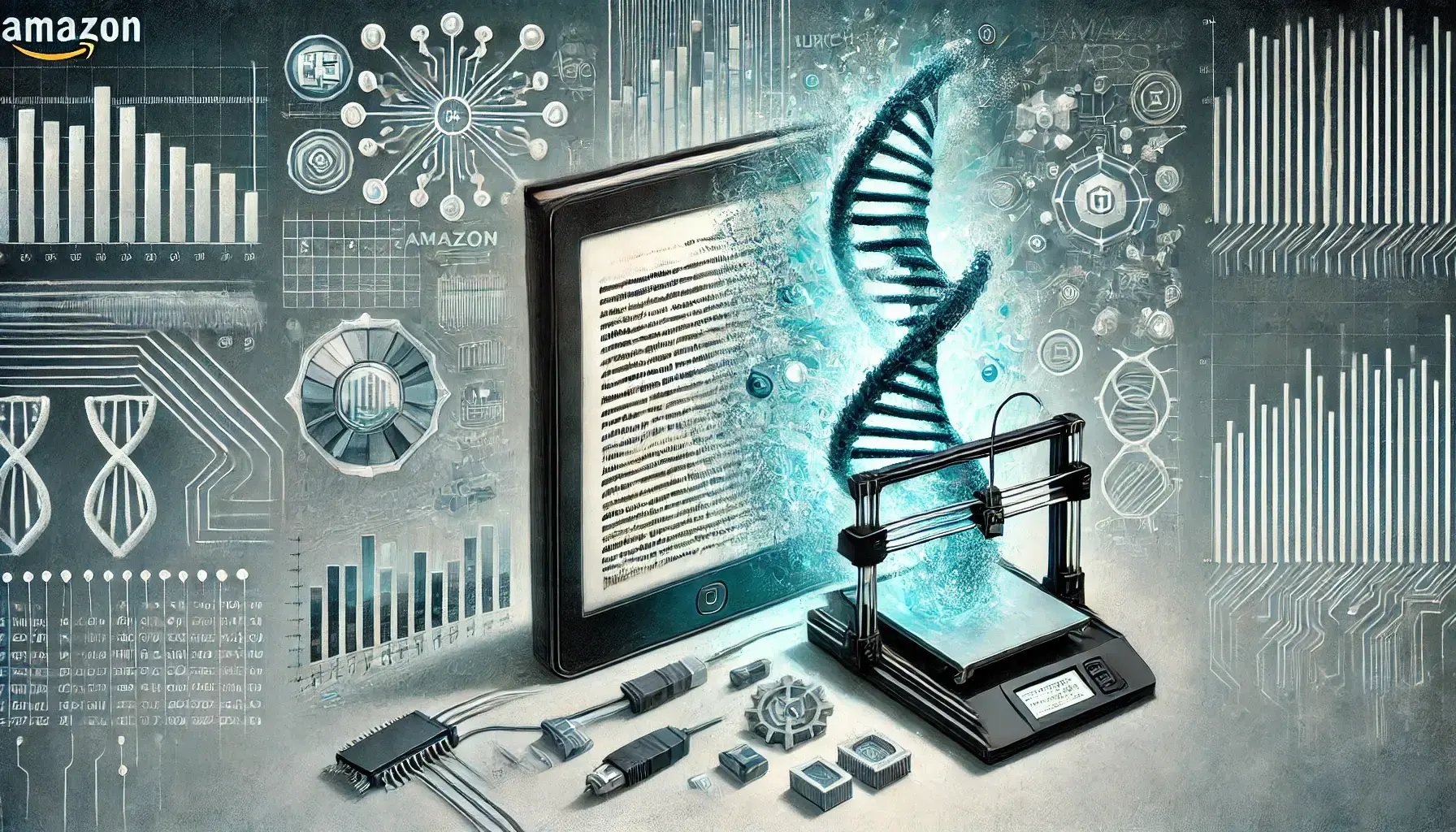When we traded ownership for convenience, we never imagined that everything from our books to our biological data would become hostage to corporate terms of service.
Every day, we click "I Agree" on terms of service that would take hours to read in full. With each casual agreement, we surrender more control over our digital lives than we realize. The average American has accepted dozens of service agreements, yet has read virtually none of them in full. These digital contracts govern everything from our entertainment and creative tools to our most intimate personal data, creating a mirage of ownership while companies maintain the ultimate control.
Recent controversies across three different industries have exposed the fragility of what we believe we "own" in the digital age:
- Amazon Kindle users discovered that their "purchased" e-books can vanish from devices at the publisher's discretion, revealing that readers pay full price for what amounts to a conditional license.
- Bambu Labs 3D printer owners faced mandatory security updates that fundamentally altered how their hardware functioned, raising questions about who truly controls physical devices connected to the cloud.
- 23andMe's financial troubles have left millions wondering what happens to their genetic information—perhaps our most personal data—when the company housing it faces bankruptcy or acquisition.
These cases share a common thread: the growing disconnect between consumer expectations of ownership and the reality of corporate control enshrined in lengthy terms of service. As our physical and digital lives increasingly blur, the question becomes more urgent: In an age where everything from books to our DNA is digitized, what does ownership actually mean?
Amazon Kindle and the Illusion of Ownership
I was an early adopter of the Kindle, eagerly unboxing my first-generation device in 2007. The promise was revolutionary: an entire library in a device thinner than most paperbacks. What wasn't clear was that I wasn't building a permanent collection—I was renting access to content that could vanish at Amazon's discretion.
When you "buy" an e-book on Kindle, you're purchasing a license to access content under conditions outlined in Amazon's terms of service. Unlike physical books you can resell, lend indefinitely, or pass down to future generations, Kindle purchases exist in a legal gray area where consumer expectations clash with corporate fine print.
This reality became clear in 2009 when Amazon remotely deleted copies of George Orwell's "1984" from users' devices due to a rights dispute. The irony wasn't lost on consumers. While Amazon issued refunds, the incident demonstrated that your digital bookshelf exists at the company's pleasure.
Amazon's terms explicitly state they can "change, suspend, or discontinue the Service, in whole or in part, including adding or removing Content from a Service, at any time without notice." Courts have generally sided with Amazon in disputes over digital content ownership.
The disconnect between what consumers believe they're buying (a book) and what they're actually purchasing (a conditional license) represents one of the digital age's most significant bait-and-switches. We pay comparable prices to physical copies but receive significantly fewer rights—we cannot resell, freely lend, or guarantee long-term access to our purchases.
This arrangement benefits publishers and Amazon by eliminating the used book market and ensuring every reader pays full price—a publisher's dream scenario.
Bambu Labs and the Shifting Control of 3D Printing
3D printing began as an open-source movement where makers freely shared designs and modifications. This collaborative approach transformed expensive industrial technology into affordable machines for hobbyists and small businesses. However, as the industry matured, companies like Bambu Labs introduced proprietary models that sacrificed user control for convenience.
In 2023, Bambu Labs implemented mandatory security patches that altered printer functionality without user consent. Machines refused to operate until updates were installed, sometimes interrupting ongoing projects. Unlike open-source printers where users could modify or roll back firmware, Bambu's cloud-connected approach meant the company maintained ultimate control over machines in users' homes.
Bambu's cloud connectivity raises significant privacy issues. These printers continuously collect data about what users create, when they print, and how they use their machines. This information flows back to company servers, creating detailed profiles of user behavior and intellectual property. For professionals using these printers for prototype development or proprietary designs, this data collection presents serious confidentiality risks.
The printers' cameras, intended for remote monitoring, further complicate privacy considerations. These cameras capture not just the print bed but potentially the surrounding environment, including homes and workspaces. Users must trust that this visual data remains secure and isn't used for purposes beyond what they've explicitly authorized.
What happens if Bambu Labs changes its business model, goes bankrupt, or ends support for older models? Users who believed they "owned" their printers might find themselves with expensive paperweights if the company's servers become unavailable.
This shift from open-source to proprietary models fundamentally changes the maker-tool relationship. Users face a trade-off: accept the convenience of ready-to-use systems but surrender control and privacy, or choose more complex open-source alternatives that preserve autonomy but require greater technical knowledge.
As manufacturers continue pushing toward closed systems with continuous data collection, the definition of ownership becomes increasingly murky in an industry that once championed user freedom and privacy.
23andMe and the Precarious State of Genetic Privacy
When consumers swab their cheeks and mail DNA samples to 23andMe, they're not just discovering their ancestry—they're entrusting their most personal biological information to a private corporation. With 23andMe's recent bankruptcy filing, these concerns have shifted from theoretical to immediate, raising urgent questions about the fate of millions of genetic profiles.
Unlike books or 3D printers, genetic information is irrevocably personal—it cannot be changed and represents the most intimate biological details about an individual. Now that 23andMe has entered bankruptcy, this data transforms from protected personal information into a potential corporate asset that could be sold, transferred, or accessed through court-supervised proceedings.
The bankruptcy filing came after years of financial struggles, including a 90% stock value decline since going public. As creditors line up to claim their share of remaining assets, consumer genetic data—despite assurances to the contrary—could become one of the company's most valuable remaining assets.
Current U.S. bankruptcy laws provide inadequate protection for sensitive consumer data. When companies like Radio Shack declared bankruptcy, customer information was auctioned to the highest bidder. Unlike retail purchase histories, 23andMe holds information that could reveal disease predispositions, family relationships, and other deeply personal insights.
The company's privacy policy and terms of service—which few users read in full—may not withstand the pressures of bankruptcy court, where creditor interests often outweigh consumer privacy concerns. Despite 23andMe's public assurances that user data remains protected, bankruptcy judges have significant latitude in determining which assets can be liquidated to satisfy debts.
The half-life of genetic data extends far beyond any company's lifespan. Information shared today could affect not just users but their relatives and descendants for generations. Unlike a credit card number that can be changed after a breach, genetic information, once exposed, remains compromised permanently.
As 23andMe works through bankruptcy proceedings, consumers face a stark reality: despite paying for these services and receiving assurances about data privacy, they've surrendered control over their most personal biological blueprint with few guarantees about its future security. The outcome will set important precedents for how genetic data is treated when financial interests collide with privacy promises.
Conclusion: Reclaiming Ownership in the Digital Age
Amazon Kindle, Bambu Labs, and 23andMe represent three points on the same troubling spectrum—the gradual erosion of ownership and privacy in the digital age. From entertainment content to physical devices to our most personal biological data, the same pattern emerges: what consumers believe they own is increasingly controlled by corporations through carefully crafted legal agreements that few read and even fewer understand.
In each case, companies have leveraged technological convenience to fundamentally alter the traditional concept of ownership. We've moved from a world where purchasing something meant possessing it fully—with the right to modify, resell, or use it indefinitely—to one where we merely license access under increasingly restrictive terms. This shift has occurred without most consumers fully understanding or consenting to these new arrangements.
The most concerning aspect is that this transformation covers nearly every aspect of modern life: our entertainment (Kindle), our tools (Bambu Labs), and even our biological identities (23andMe). As more products become "smart" and cloud-connected, this trend will only accelerate unless consumers and regulators take action.
Several approaches could help restore the balance between corporate interests and consumer rights:
Legal Reform: Current laws were written before digital ownership became complex. Updated legislation could establish minimum ownership rights that cannot be signed away through terms of service, particularly for genetic data and physical devices.
Transparency Requirements: Companies could be required to provide clear, concise summaries of what rights consumers are surrendering, displayed prominently before purchase rather than buried in legal documents.
Data Fiduciary Standards: Similar to how financial advisors must act in clients' best interests, companies holding sensitive data could be legally required to prioritize user privacy over profit motives.
Open Standards and Interoperability: Supporting open-source alternatives and requiring major platforms to allow data portability would give consumers more control and reduce dependency on any single company.
Until broader reforms take hold, individuals can protect themselves by:
- Reading terms of service for services involving sensitive data
- Using AI tools to summarize the privacy implications of the terms of service
- Supporting companies that respect ownership rights and privacy
- Backing up content when possible and seeking DRM-free alternatives
- Considering the privacy implications before adopting new technologies
- Supporting right-to-repair initiatives and open-source alternatives
The digital revolution promised to democratize information and empower individuals. Instead, we risk creating a world where we own less while companies control more. Reclaiming meaningful ownership in the digital age will require both individual vigilance and collective action to establish new norms and regulations that protect consumer rights.
The question of who owns your data—and by extension, your digital life—remains one of the defining issues of our time. How we answer it will shape not just our relationship with technology, but the very nature of property, privacy, and personal autonomy in the decades to come.



